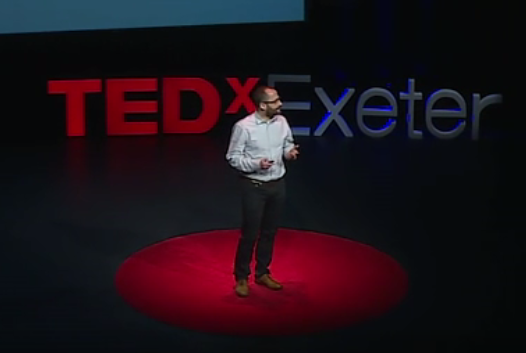(单词翻译:单击)
听力文本
So extraordinary variations, and surprising to some,
如此巨大的差异震惊了一些人,
but not surprising to people who have read the work of Daniel Kahneman, for example, the Nobel-winning economist.
但是对一些人来说并不惊讶,比如阅读过诺贝尔经济学奖获得者丹尼尔·卡内曼的研究成果的人。
He and his colleague, Amos Tversky, spent years researching this disjoint between what people perceive and the reality,
他和他的同事,阿莫斯·特沃斯基,花费了数年的心血在这个人们的见解与现实脱节的问题上,
the fact that people are actually pretty poor intuitive statisticians.
实际上人们是直觉很差的统计学家。
And there are many reasons for this.
这背后有着很多原因。
Individual experiences, certainly, can influence our perceptions,
个人体验,当然可以影响我们的见解,
but so, too, can things like the media reporting things by exception, rather than what's normal.
但也包括媒体带有偏见而非全面客观的报道。

Kahneman had a nice way of referring to that.
卡内曼对此有一个很好的描述。
He said, "We can be blind to the obvious" -- so we've got the numbers wrong -- "but we can be blind to our blindness about it."
他说,“我们对显而易见的事情视而不见”--所以我们有了错误的数字--“但是我们可以对我们视而不见这个事实视而不见。”
And that has enormous repercussions for decision making.
而这对做决策来说有巨大的影响。
So at the statistics office while this was all going on, I thought this was really interesting.
那么在统计学办公室,当这些事情在发生的时候,我觉得很有趣。
I said, this is clearly a global problem, but maybe geography is the issue here.
我认为显然这是一个全球性的问题,但也许与地域差异有关。
These were questions that were all about, how well do you know your country?
这里的一些问题都是关于你对你的国家了解多少。
So in this case, it's how well do you know 64 million people?
在这个问题里,是在问关于你对6400万人口了解多少?
Not very well, it turns out. I can't do that.
结果是,我并不是很了解。
So I had an idea, which was to think about this same sort of approach but to think about it in a very local sense.
所以我有了一个想法,是用相同的方法,但是以一种非常地方化的方式来思考。
Is this a local? If we reframe the questions and say, how well do you know your local area, would your answers be any more accurate?
这是因地制宜的吗?如果我们重新思考问题然后说,你对你的当地状况了解多少,你的答案会更准确吗?
演讲介绍


